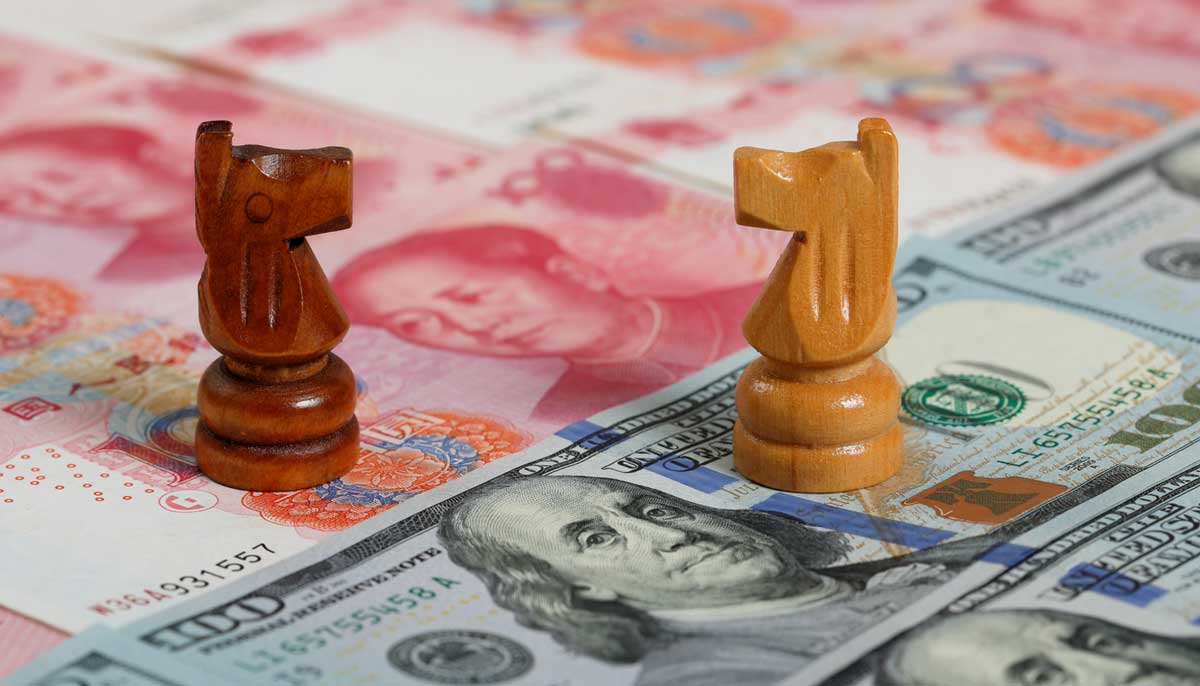Why ‘Trade War’ is an Oxymoron
June 17, 2021
The notion of a ‘trade war’ between America and China is a hot topic on the tongues of politicians today — and yet it could not be more of an oxymoron. Viewed pragmatically, it is impossible to have a trade war when two nations are happily doing so much business together. As it turns out, the American trade imbalance with China suits the intentions of the Federal government. It allows them to finance further spending by selling their debt to foreign countries like China, who want to own as much American currency as they can afford.
Trading Paper Money for Products
Trade is essentially swapping products for dollars. One country produces a collection of goods and sells them to another country for currency. Since America enjoys the strongest currency in the world, only they can use dollars to buy products. Other countries are forced to buy American products to equalize the trade. If they do not cycle currency back into the market in exchange for a product, they risk holding money that will devalue because of inflation. This is the case for China, a country that has a healthy trade surplus with the United States.
However, China is not buying products back from the United States. They are buying government debt issued in the form of Treasury Bills, Bonds, and Notes. Buying debt is very different from buying products — for both America and China. On the one hand, selling government bonds artificially increase the value of the USD, as each bond comes with interest. The Fed underwrites the repayment of bonds, which means they will pay it no matter what. On the other hand, selling debt only delays the purchase of American products to a later date. The interest paid on the treasury bonds will mean that China will get much more for the dollars at a later date. And most importantly manufacturing today goes idle as China and other countries hold off on buying American goods and services. This period of idle productivity is rotting America to the point of being unable to compete because America is not evolving its capabilities.
Despite these issues with selling debt, the American government continues to do so because it offers two short-term gains:
- Cheaper Borrowing Rates. Bond yields go down when there is strong demand. Or to put another way: the cheaper the bond value is, the higher your potential yield is. The government promises to pay back the bond value plus interest rate over the determined period. So, in the first place, it is in the interest of the government to keep demand high so that their payout is lower for each bond. In the second place, increased demand means more borrowed money for the government to invest.
- Lower Tax Rates. If the government can access liquidity from selling bonds to foreign countries, they do not need to raise taxes. Lower taxes increase earnings for American businesses. It also increases the strength of the American dollar relative to other currencies. Thus, the cycle of buying cheap products from overseas continues!
So why not limit the sale of government bonds? That would be the right answer if you were looking to optimize the American economy for manufacturing and the workers that it employs. However, the government is more interested in funding their military. America already has the most impressive army in the world by a long shot. In 2018 the military budget will be over $824 billion — and they need to finance this behemoth somehow.
Conclusion
The real issue behind the trade war is America’s national debt. If the government were fiscally responsible, they would be selling products manufactured in America to the Chinese. That is how trade should work. Instead, they choose to leverage the value of USD despite the potential for economic ruin. So when Donald Trump says a trade war is good, he is vouching for a broken American financial system that sells debt to finance the military-industrial complex. If the President and Congress were sincere about creating jobs and balancing the trade deficit, they would first and foremost address the national debt. For more straightforward logical arguments about today’s issues sign up for our newsletter here.